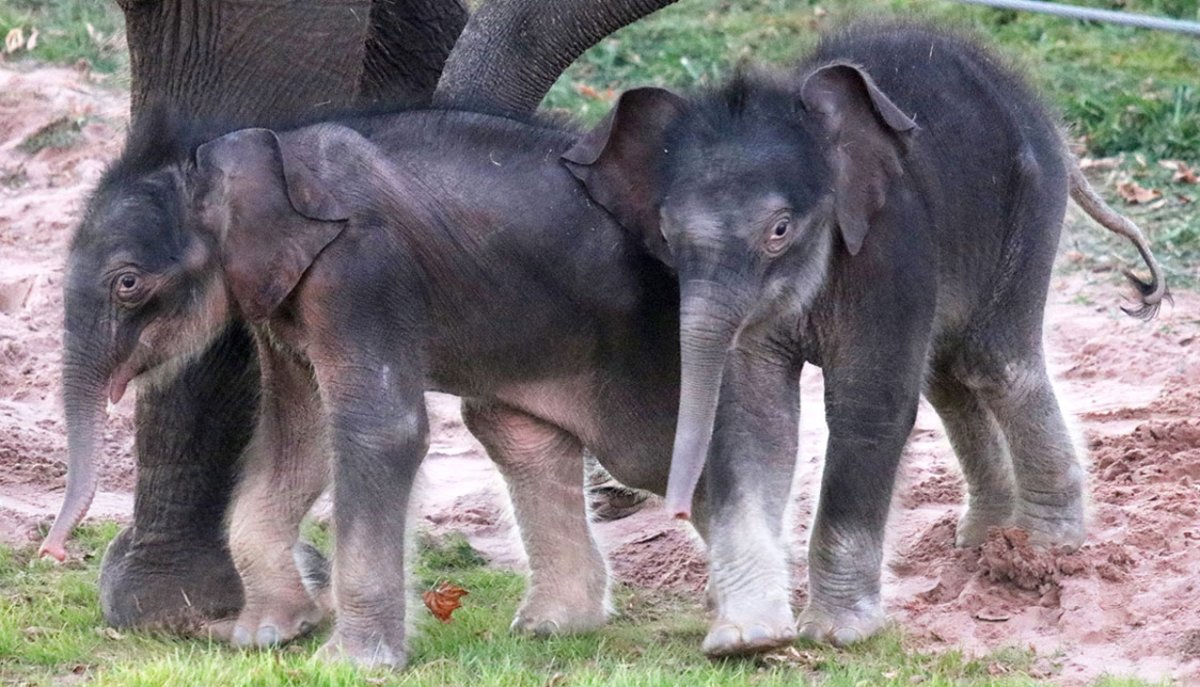A zoo in New York is celebrating a “miracle,” announcing that they recently welcomed twin male elephant calves to the world.

The Rosamond Gifford Zoo in Syracuse, N.Y., announced the births of the Asian elephants on Nov. 10 in a series of posts on social media.
“When we first announced the pregnancy of Asian elephant Mali, we assumed our herd of six Asian elephants would become seven,” the zoo wrote on Twitter.
“Well, we not only welcomed the seventh member of our Asian elephant herd, but our eighth.”
The twins were a surprise to everyone at the zoo due to the “sheer improbability” of twin elephant births and also the “complexity of elephant ultrasounds,” the zoo said in a press release.
The second calf was born 10 hours after the first, to the astonishment of the staff, but the animal care team sprang into action to help the second-born, who was born significantly weaker than his twin.
According to the zoo, elephant twins account for less than one per cent of elephant births worldwide, and often twins are stillborn or too weak to survive. Mali’s delivery of two healthy calves marks the first recorded case of surviving elephant twins being born in the U.S.
“I can’t commend my team enough for all they have done these past few weeks to ensure the care and safety of Mali and her twins. It has been incredible to watch them in action and witness the high level of expertise, professionalism and focus under pressure,” said Zoo Director Ted Fox.
Mali’s first calf was born on Oct. 24 weighing 220 pounds. The second calf weighed 237 pounds.
The zoo says their animal care team has been “monitoring the twins around the clock” for the past two weeks to “ensure both are thriving.”
Asian elephants are classified as Endangered by the International Union for the Conservation of Nature. Their wild populations are threatened by human conflict, habitat destruction and ivory poachers. There are an estimated 20,000 individuals left in the wild.







Comments